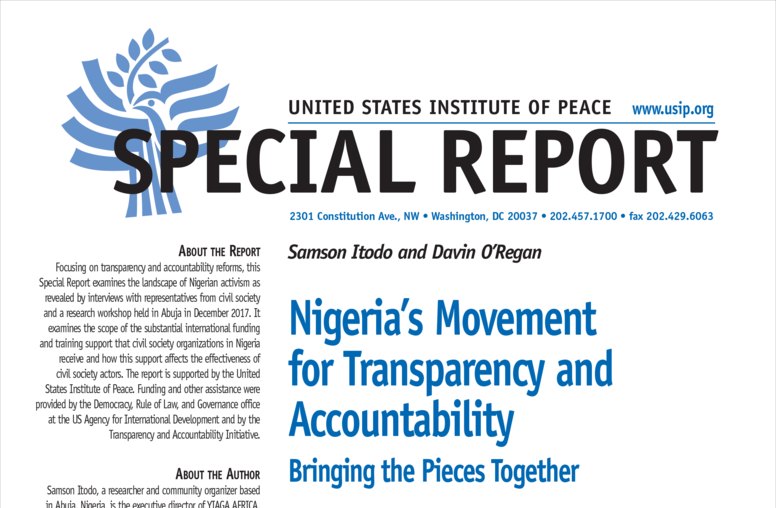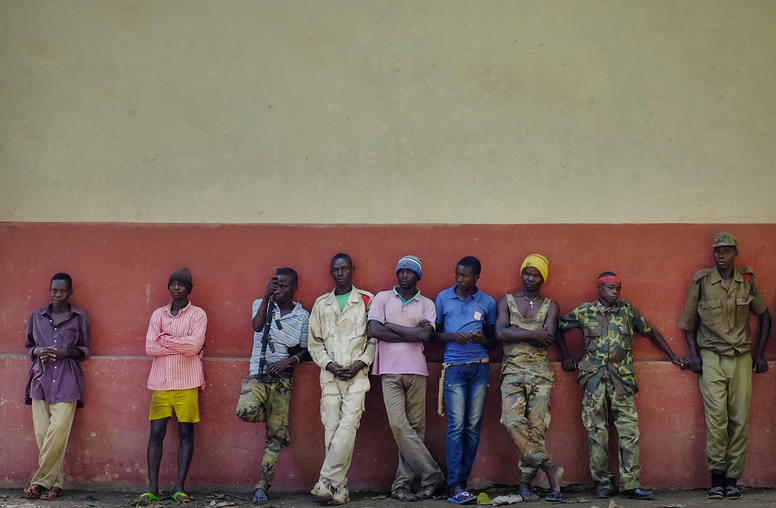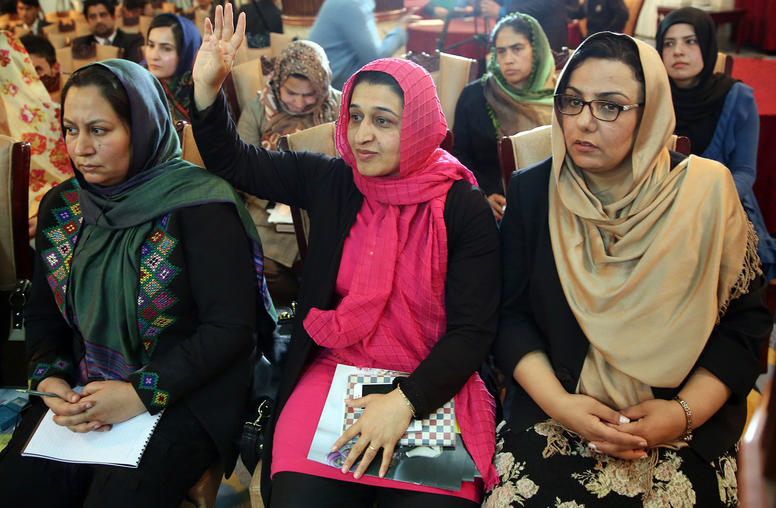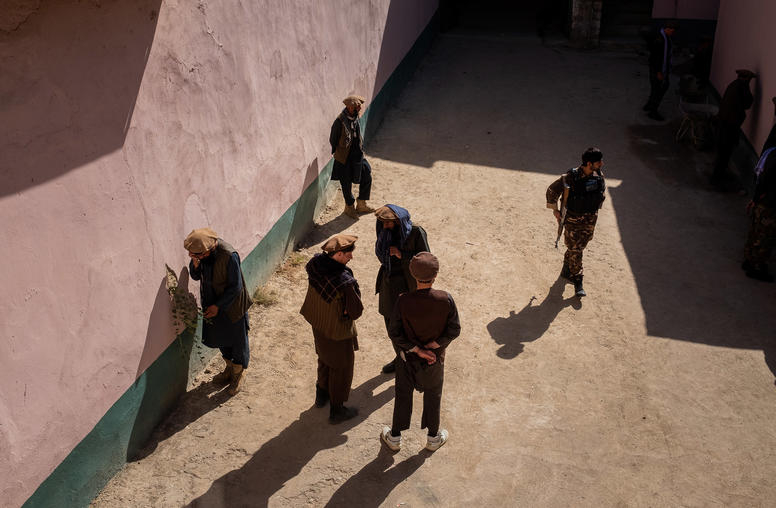Question And Answer
Publications
Articles, publications, books, tools and multimedia features from the U.S. Institute of Peace provide the latest news, analysis, research findings, practitioner guides and reports, all related to the conflict zones and issues that are at the center of the Institute’s work to prevent and reduce violent conflict.

Vikram Singh on the South China Sea
With trillions in goods moving through the South China Sea annually, it’s arguably the most important shipping lane on the planet, says Vikram Singh. While China says that it wants to keep the sea free and open for trade, most worryingly for the United States, Beijing has claimed it can deny access to military vessels, challenging the U.S.’ ability to maintain a balance of power in the region.

Nigeria’s Movement for Transparency and Accountability
Since the demise of its military dictatorship in the late 1990s, Nigeria has made remarkable democratic progress. Still, widespread corruption bedevils the country—which in many respects presents its biggest policy challenge and its biggest threat to stability and development. Drawing on a workshop held in Abuja as well as on...

The “Green Diamond”: Coffee and Conflict in the Central African Republic
Coffee production is a fairly small part of the Central African Republic's economy, but it plays an outsize role in the country's ongoing conflict. Armed militia groups that hold sway over the country's main coffee growing regions and trade routes reap millions of dollars in funding to sustain their operations. This report discusses how understanding the political economy of conflict in the Central African Republic can help national and international stakeholders break the cycle of violence.

Vikram Singh on President Trump’s Trip to India
The visit did not yield a bilateral trade agreement, as many hoped it would. But USIP’s Vikram Singh says that despite the trade impasse, the trip did deliver defense and energy deals and reinforced “the symbolism of this partnership continuing to grow basically as it has for the entire 21st century.”

Belquis Ahmadi on Afghan Women and the Peace Process
Since 2001, Afghan women have assumed larger roles in society—becoming teachers, doctors and government officials. With intra-Afghan talks expected to begin this month, USIP’s Belquis Ahmadi says it’s important the Taliban “accept the reality that today’s Afghanistan is very different from the country they ruled” when it comes to women’s rights.

Mona Yacoubian on Syria’s Future After Nine Years of Conflict
Idlib is the site of Syria’s largest displacement crisis since the conflict began nine years ago, with nearly one million displaced in the province. As the Assad regime continues to reclaim Idlib, USIP’s Mona Yacoubian looks at the future for Syria, saying “the fact of the matter is that Syrians are terrified to live under Assad’s rule.”

Sarhang Hamasaeed on Iran and Iraq Amid Coronavirus Pandemic
As the coronavirus pandemic spreads in both countries, USIP’s Sarhang Hamasaeed examines the obstacles facing Iraq’s newly appointed prime minister, as well as whether addressing the crisis might open the door for de-escalation between the U.S. and Iran, saying, “I do hope that these unfortunate challenges still come with some opportunity.”

Understanding Resistance to Inclusive Peace Processes
Current peace processes are designed to be more inclusive of women, civil society, youth, opposition political parties, and other frequently marginalized communities. Implementation of inclusive peace processes, however, has not progressed smoothly—and are frequently met with resistance. Based on an examination of instances of resistance in thirty peace and transition negotiations since 1990, this report enhances practitioners’ understanding of who resists, against whose participation, using what tactics, and with what motives.

Taliban Fragmentation: Fact, Fiction, and Future
For years, the U.S. military pursued a "divide and defeat" strategy against the Afghan Taliban, attempting to exploit the supposedly fragmented nature of the group. Drawing on the academic literature on insurgency, civil war, and negotiated peace, this report finds that the Taliban is a far more cohesive organization than a fragmented one. Moreover, Taliban cohesion may bode well for enforcing the terms of its February 29 agreement with the United States, and any eventual settlement arising from intra-Afghan negotiations.

Nancy Lindborg on the Impact of Coronavirus in Fragile States
As COVID-19 cases appear in the Middle East and Africa, USIP’s Nancy Lindborg talks about opportunities for peace amid the humanitarian and security risks posed by an outbreak. “The hope is that everyone uses this opportunity to put down their arms and think differently about conflict,” says Lindborg.